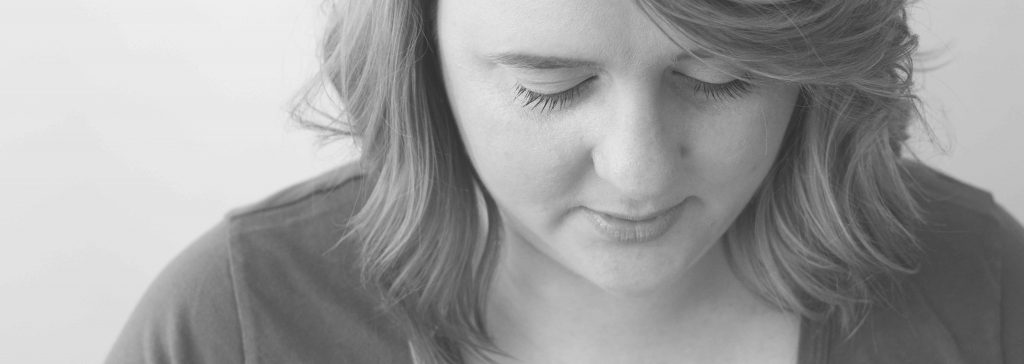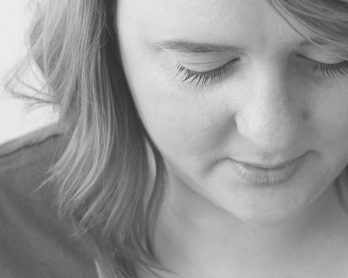Mental Health and Some Ways I Take Care of Myself

Earlier this week I came across an article, “7 Ways I Take Care of Myself During Depressive Episodes,” by Taylor Steele over on The Body Is Not An Apology (which you should read, like, all the time). I can identify with a lot of what the author has to say, especially with the sentiment that I am so over the stigma around talking about mental illness. Ditto treating mental health as separate and wholly different from physical health.
A brief look at my mental health
I don’t love internet conversations comparing diagnoses (it’s not a competition, we’re all a little fucked), but I also think it’s valuable to be frank about the health issues that touch our lives. The one I hid the longest and most deftly was, obviously, that I was dealing with bulimia.
As for the other stuff, I’ve had a few different diagnoses over the years I’ve seen therapists and psychiatrists. I don’t know which if any are completely accurate. I can say that between cognitive behavior therapy, medication, and recovering from bulimia, issues I’ve had with severe anxiety and major depressive episodes are fewer and less acute.
Another day this week, a friend and I had a conversation about parents being open about mental health issues and the difference it makes (for the better) in the lives of their children. I’m lucky to be surrounded by parents, and people in general, who don’t hide their mental health issues. (I’m conflating two things a bit here, I know–mental illness and mental health aren’t quite the same thing. Just roll with it.) It seems only fair I should be straightforward with mine.
All of this got me thinking, how do I take care of myself when it feels like everything has gone to shit? I recently wrote about how sharply I’m feeling the loss of my brother lately. The grief is always there, but lately shifted from the ever-present if dull ache into depression. I won’t ever get over losing him. Frankly, I don’t want to. When depression hits as hard as it has lately, though, I do want to manage it in a way that allows me to function in day-to-day life.
With that in mind, here are some of the ways I take care of myself during depressive episodes:
Treat yo’ self
Last week, I got a haircut I was putting off. I got a facial with a Groupon. My bestie and I got cheap pedicures at a strip mall nail place. I enjoy all of those things, but I rarely make the time or effort to do them. It feels good to be cared for.
Wash your face at the end of the day
I don’t know what it is, but if I’m feeling depressed I resent having to wash my face and brush my teeth at the end of the day. It’s an ongoing dialog to remember that I actually like those things. Oh, and I like face masks too. Put on a face mask and play video games. You’re worth doing little things for.
Keep eating
This is a big stumbling block for me, and another mood bellwether. It’s also a very difficult principle to accept if you’re someone with a history of binging and/or purging. I now know that my mental health is far easier to manage if I keep my mood stable with regular eating.
So I recognize now that if I get home from work and I’m super hungry, it’s probably because I didn’t take the time to feed myself properly during the day. Maybe I skipped a meal, or maybe what I ate was way out of balance. Whatever it is, I have to remind myself to keep eating. (I have a meal plan for guidance my dietician helped me create, which I plan on sharing in another post sometime). If I restrict, I tend to come to the dinner table unprepared to eat mindfully. I eat too fast, or I’m too distracted to appreciate what I’m putting in my mouth, and it leaves me unsatisfied. That’s a memo to myself to make sure I go to work with the snacks and meals I need, and to actually eat them.
Wash Your Hands (or, Try Something Different)
A pottery instructor once told me that, if you’re struggling with the clay and the wheel, you should stop and wash your hands. Literally nothing can save my bad pottery, but I hope he’d be satisfied with knowing I’ve adopted that lesson as a life strategy. If it isn’t working, walk away for a minute, then try something different. Come back to it with fresh eyes.
I love watching television while I dink around on my iPad or something. It sounds like I’m zoning out, I know, but I’ve found it’s a way I can coax myself into relaxing. I have something I’ve seen before on in the background and I play slots (no really, I love iPad slots. It costs zero dollars and has pretty graphics. Judge if you must). While I’m doing it, though, my brain wanders over things from the day or things I’d like to accomplish or places I’d like to go. It’s like when you’re in the shower and get great ideas, except lying on the couch.
When I stop enjoying television is one the bellwethers of my mental health. I’ll be doing my usual routine, but noticing I’m not hitting that sweet spot of daydreaming. If I can key into it, I can do something about it. Last weekend, I decided to revisit some video games when I noticed it was happening. I hooked up the ol’ Wii and played the first video games my brother and I ever had. It was comforting, but also switched my brain over to something I could focus on instead.
Take your medication
This is another thing I typically have no problem managing. I use PillPack, which helpfully has my medications labeled with the date and time I should take them (it’s not that complicated – one in the morning, on at night). When I’m depressed, though, I sometimes disengage to a point of forgetting the necessities. With PillPack, at least I know the next time I go to take one that I missed it. Depending on which it is, I can catch up or set myself a reminder to be sure I get my next dose when I should.
Ask for what you need
We don’t do this enough. Why don’t we do this more often?
It can feel selfish. I need a few hours off this morning. I need you to handle dinners this week. It’s also so, so essential. I’ve gotten better at asking my husband to step in when I’m struggling. He’s always been happy to do it, but my guilt over expecting myself to do it all set up a weird dynamic of me feeling perpetually guilty and then resentful. None of that was necessary. Now, I just ask. It’s not good for me to never help with the grocery store or cooking, but sometimes it is an act of self care. And when we’re both busy? We order something like Blue Apron or Hello Fresh to get us through the week.
It’s hard to see through the fog of depression, but there are people around you who want to support you. Truly. Just reach out.
It’s ok not to be at 100%
It’s never 100%. With grief, depression, or both it never is. Being a high achiever is, justified or not, an integral part of my identity. When I’m not performing–in life, work, or whatever else–I tend to double down on the self-doubt and guilt. Reminding myself that 1. It’s ok to be sad and 2. Keep working at it is sometimes the best I can do. The point is I’m trying. And today, five years after losing my brother, it’s what I’m doing still. Much love to you if you’re working at doing the same.
// 7×35







